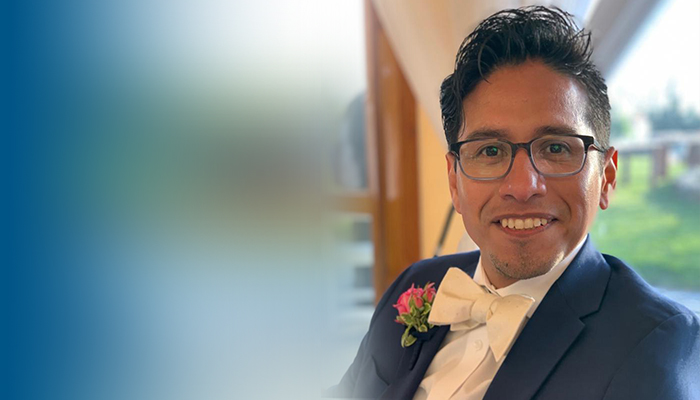HOW CAN WE HELP YOU? Call 1-800-TRY-CHOP
In This Section
Hispanic Heritage Month: Q&A With Featured Research Staff Marco Flores-Mendez, PhD

The Featured Research Staff Member for Hispanic Heritage Month is Marco Flores-Mendez, PhD.
Editor's Note: Our Featured Research Staff Member is Marco Flores-Mendez, PhD. Dr. Flores-Mendez is a research associate in the laboratory of Xilma Ortiz-Gonzalez, MD, PhD. In this Q&A, Dr. Flores-Mendez discusses his research, his passion for dancing, and the opportunity Hispanic Heritage Month provides.
Tell us about the degrees you earned and where you went to school.
I completed my bachelor's degree in chemistry and biology at the Autonomous University of Guerrero in Mexico. After that, I moved to Mexico City and received my master's and doctorate degrees in genetics and molecular biology at the Center for Research and Advanced Studies of the National Polytechnic Institute.
What message do you hope people take away from celebrating Hispanic Heritage Month?
This celebration includes many people from different countries and cultures bound by the same language: Español. It is an opportunity to showcase and embrace the diversity of human nature. Science was formed by a diverse community and shaped by people with different languages but a common idea: progress. Diversity is present in all aspects of nature to ensure expansion and growth, and humankind is no exception. In small or large groups of people, diversity provides experiences and ideas that enrich our communities and potentiate their growth and success.
What is a research project you're working on, and why is it important?
I study the causes of TBCK-encephaloneuronopathy (TBCKE). This is an autosomal recessive disorder in children originated by loss of function of TBCK. This protein is widely expressed in the body, and its deficiency affects the nervous system. Patients with TBCKE show progressive brain atrophy and accumulation of storage material in neurons, and we do not know the causes.
I work with a TBCKE model in human iPSC-derived neurons from patients who carry the homozygous variant p.R126X in TBCK (also known as the Boricua mutation). We found that TBCK-deficient neurons are more susceptible to cell death. The biological function of TBCK has not been described, but our recent data suggest a novel role in the endolysosomal pathway.
What are some of the most salient training experiences you've had at CHOP?
As part of the postdoctoral fellowship program, I had the opportunity to attend a variety of courses offered by CHOP that were helpful in my professional development. For instance, the Communication and Leadership workshop and the Career Mentorship Program helped me to improve as scientist. The mentorship I received not only from my mentor, but also from the University of Pennsylvania and CHOP community, has been invaluable. As a Hispanic, my path was not easy, but here at CHOP, the supportive and collaborative environment greatly aided my personal and professional growth.
Aside from research, what do you consider your biggest accomplishment?

Marco Flores-Mendez, PhD, the Featured Research Staff Member for Hispanic Heritage Month, enjoys kayaking in his spare time.
During my training periods in diverse laboratories around the world, I have met people and made friendships that will last forever. Today, I realize that teamwork is an essential piece not only in science, but also in everyday life.
What do you do for fun when you're not working?
I enjoy camping and kayaking. While living in Philadelphia, I learned how to ski, and as I gained more experience, it became one of my favorite winter hobbies. And I love dancing; I have a sweet spot for salsa and hustle.


